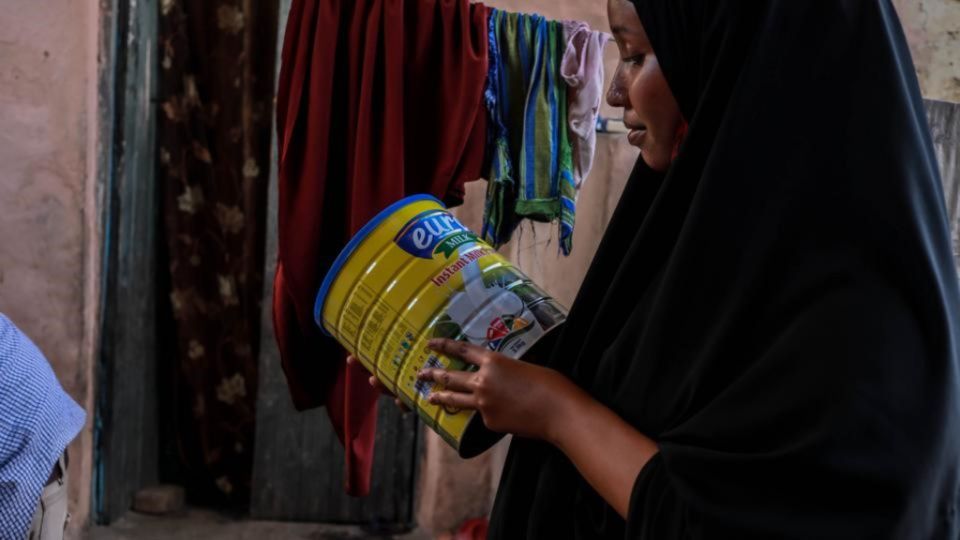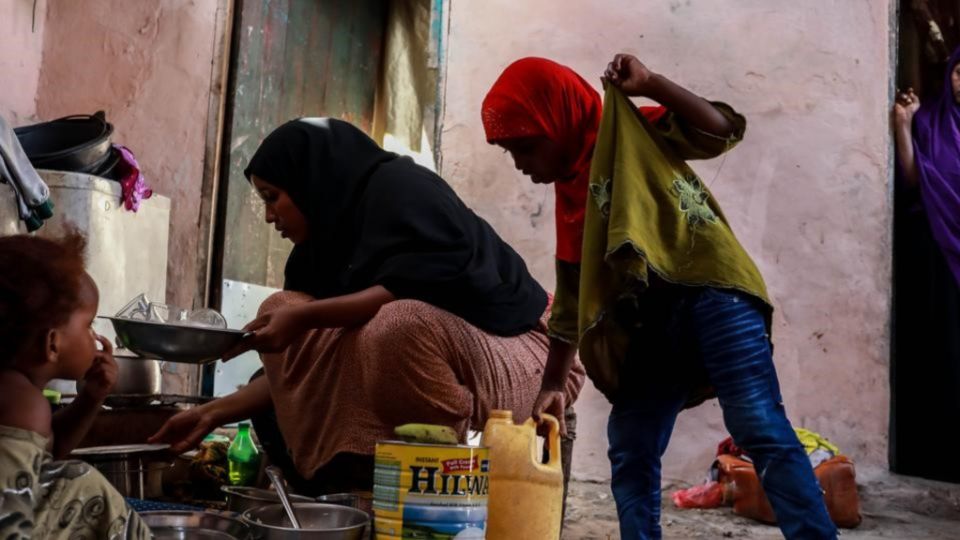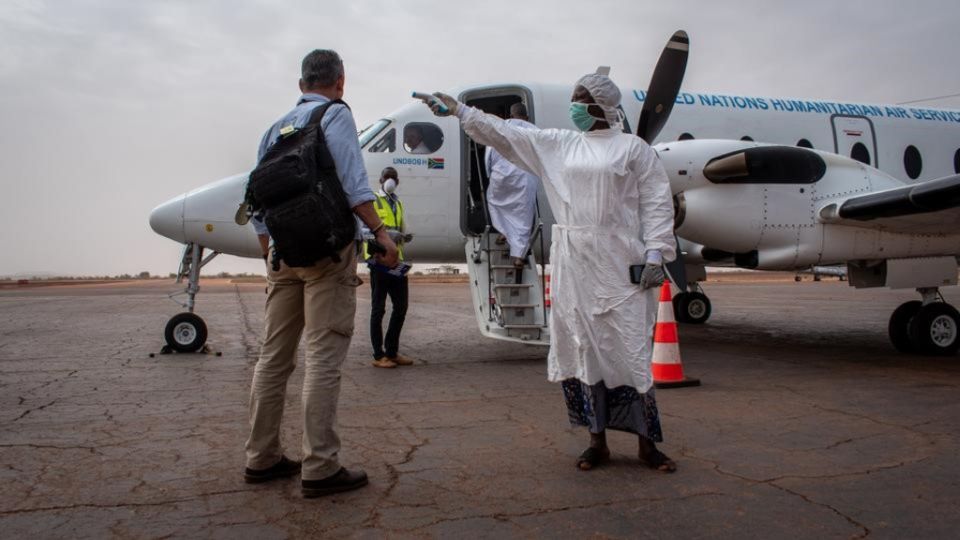As part of its ongoing collaboration with the World Food Programme (WFP), Latter-day Saint Charities is helping fund the WFP’s global distribution of critical supplies during COVID-19. This donation helps feed schoolchildren in Somalia who cannot obtain a meal because of pandemic school closures. An additional $2 million donation also bolsters the WFP’s effort to mitigate supply chain disruptions and deliver necessary medical staff and supplies where they are most needed.
“This is why the World Food Programme is stepping up to fill in the gaps—to provide all the things that are needed out there in the field to help people stay alive and keep the economies going as well,” said WFP Executive Director David Beasley. “We’re very grateful because [the Church is] one of our largest nongovernmental partners. We work together in many countries. We’ve talked about many other countries and many of the opportunities of how we can end hunger around the world.”
“[The WFP has] a presence in places where we have no members of the Church, in places like Yemen, Somalia—places that are conflict-ridden,” added Sister Sharon Eubank, president of Latter-day Saint Charities. “The partnership is five or six years old, and it’s one of our most significant partners.” She and Bishop W. Christopher Waddell of the Presiding Bishopric of The Church of Jesus Christ of Latter-day Saints recently hosted Beasley on Temple Square.

Hani Mohamed
Hani Mohamed confirms the receipt of her e-Shop at her home in Mogadishu, Somalia, on April 2, 20202020 by Intellectual Reserve, Inc. All rights reserved.
The WFP is a United Nations agency that operates in more than 80 countries, feeding people caught in areas of conflict and natural disaster. It also works with communities to improve nutrition and build resilience.
Relieving Suffering in Somalia
The Somalian government closed its schools in April 2020 after the first cases of COVID-19 appeared in the country. Though this was a prudent decision, the closure cut off many schoolchildren from an important opportunity to obtain a meal during the day—a significant setback for a country wrestling with malnutrition. A lack of good food weakens the immune system and increases one’s susceptibility to diseases such as COVID-19.
A Latter-day Saint Charities’ donation is helping WFP Somalia use its e-Shop phone app to ensure that some 35,323 schoolchildren have five months of nutritious food.
“With this contribution [from Latter-day Saint Charities], we will be able to prevent devastating nutrition and health consequences for the children currently missing out on their daily meals amid school closures,” said WFP Somalia country director and representative Cesar Arroyo. “Under normal circumstances, school feeding means a lot to Somali schoolchildren [and] their families and communities. It means protection from hunger, poverty and early marriage. It also means an increase in enrollment and learning, creating a generation of better-educated Somalis and a bright future for Somalia.”
Getting Medical Supplies and Staff to Where They Are Needed Most
Latter-day Saint Charities’ donation is also helping the WFP get the most out of its global distribution network, which includes three global (Belgium, the United Arab Emirates and China) and five regional (Ethiopia, Ghana, South Africa, Malaysia and Panama) hubs. The global locations are advantageous because of their proximity to major commercial air freight and key manufacturers in the health care industry.

Airport staff in Mopti Airport in Mali
Airport staff in Mopti Airport in Mali take temperature readings of the passengers prior to boarding the aircraft. The airport continues to provide lifesaving transportation services to humanitarian aid workers. It has revised its procedures and is implementing measures to prevent the risk of infection and transmission of COVID-19.2020 by Intellectual Reserve, Inc. All rights reserved.Taken together, the global and regional centers are moving life-saving humanitarian cargo and health care workers to countries responding to the pandemic. Flights between global and regional hubs, along with a fleet of smaller planes, stand ready to move cargo and personnel where they are needed most.
“These transportation hubs not only facilitate the WFP’s ability to effectively deliver food to those in need during the COVID-19 pandemic—they also improve the logistics of other humanitarian organizations who have been able to use these same networks to deliver other life-saving items to those in need,” said Shawn M. Johnson, director of humanitarian services within the Church’s Welfare and Self-Reliance Services Department.
In recent months, the WFP’s network of global and regional transportation hubs has moved nearly 45,000 tons of humanitarian cargo and COVID-19-related items (including surgical masks, safety googles and face shields) to 161 countries. Some 18,000 staff from various aid organizations have been transported via WFP aircraft, freight ships and trucks to 55 destinations. These efforts are especially important to mitigate current worldwide disruptions to vital supply chains and commercial transport systems.
“What we can provide reaches out farther than it would otherwise without someone like [the WFP],” said Bishop Waddell. “We’re grateful for the help that they provide.”